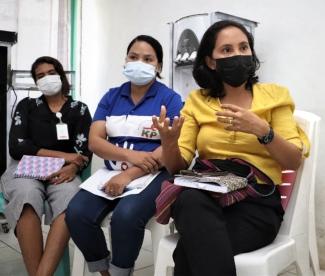Convened with USAID support through the USAID Health System Sustainability Activity on October 6, 2021, Timorese civil society organizations (CSOs) working in the health sector met for the first time and agreed to form a CSO health network that will become a platform to share information and experience and improve their ability to advocate for citizens' right for health services based on data and evidence. The lack of advocacy to policy makers results in insufficient resources for the health sector and affects the quality of services. Timor-Leste's parliamentary system, in which people vote for a party and the party fills the seats, means there is no constituent representation. This makes it more difficult to mobilize communities. As a result, many Timorese do not fully understand their role in participatory governance beyond elections. Often CSOs are either unaware of what services and goods the government should be providing to Timorese, or they see a gap but do not feel empowered to communicate that shortcoming and advocate for change.
“Without data, our communication with the government does not have any meaning,” said Sejuina Maria Ximenes, a representative of a CSO working in the area of maternal and child health. “First we need to improve our capacity to analyze and utilize data for advocacy.”
Paulo de Vasconcelos, who works in another CSO promoting community advocacy to boost the use of health services, lobbies for strong strategic partnerships with the government to ensure that advocacy has significant impact. “We need to avoid combative statements particularly in the media; instead we need to engage with the government through constructive dialogue.”

USAID Health System Sustainability Activity
